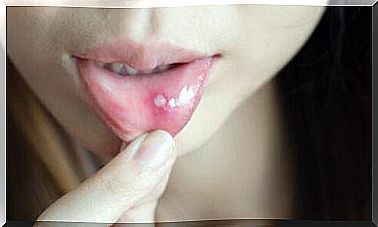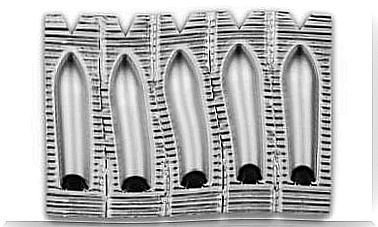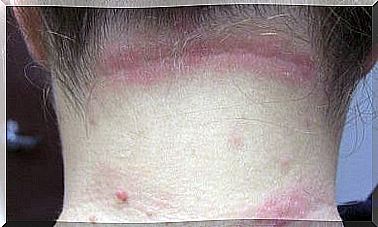Hyper-education Or How To Make Children Unhappy
Even if this does not seem to be the most suitable for taking care of them, it is obvious that the hyper-education of our children can make them become insecure people with a high potential for guilt.
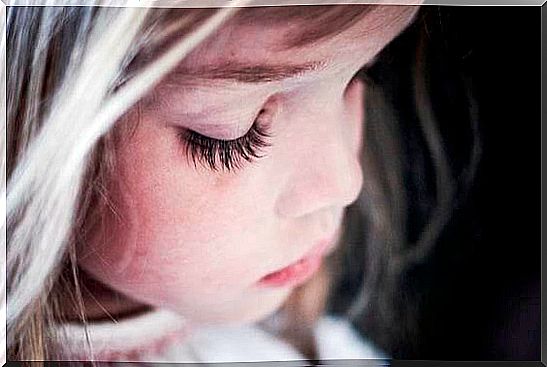
Hyper-education is defined as excessive attention to children. Many people see it as just one more term. And even as a way of questioning the way of educating children.
Shouldn’t we pay attention to the education of the little ones? Where is the limit? Every child needs the continued affection and care of their progenitors. Hence the fact that sometimes it is difficult to know where the balance is.
In reality, the limit is established at the place of the border on which the personal development of children is allowed without falling into emotional toxicity.
Education is not control. Indeed, educating does not consist in asphyxiation. And even less to cut the wings of his children who will have to be adults tomorrow. Who should be able to make decisions as well as be responsible for their own lives.
However, the term “hyper-education” implies more things than we think.
Over-education or the weight of over-protection
The most curious thing about this type of behavior is that parents are very invested in every aspect of their children’s lives: school, sport, leisure, food, friendships …
They are “hyper-present”. They think they are acting like the best progenitors in the world. That their education is the best education.
However, the emotional and personal balance of children is far removed from the reflection of happiness.
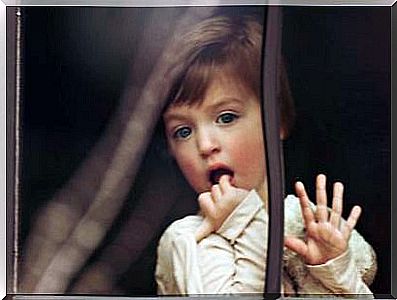
Consequences of hyper-education: disappointment
Parents have internalized what the ideal child is for them and moreover, they include themselves in this sphere of perfection as indispensable reference figures.
However, as time goes on, they see that sometimes their children do not fit these ideals and that is when disappointment arises.
- When a child sees disappointment in the eyes of his parents, he begins to build on a feeling of failure and inferiority.
Consequences of over-education: anxiety and stress
- Hyper-education goes hand in hand with “hyper-educational activity”. It is common for these parents to enroll their children in multiple extracurricular activities, which sometimes do not even interest them.
- Little by little, we will have stressed children with an anxiety level similar to that of an adult.
- Parents who enroll in a process of hyper-education do not tolerate error in their children. Every effort they make is to educate competent children, vaccinated against error and failure, and yet this is something impossible.
Consequences of hyper-education: prohibition of making mistakes
- Every child should allow themselves to fail at something and make mistakes so that they can learn freely from their own mistakes.
- Children educated in hyper-education tend to be their own judges. They’ve been given such a long list that when they realize they’re not going to be able to do it, everything falls apart and they feel guilty. They then fall into self-destruction.
Education with a healthy attachment to incite responsibility
According to a study carried out at Queen’s University, Ontario (Canada), one of the most serious consequences of over-education is that children between the ages of 7 and 12 hardly know what it is to play in the open. air or interact with friends. They are unhappy children.
We know that educating a child means above all to protect, but this famous protection must be based on the following aspects:
I protect you so that you feel safe, and not “a subject”
- Education with a healthy attachment is that which encourages the recognition of the child so that he has a good image of himself.
- A child who feels protected and recognized by his parents has a better self-esteem to take initiatives, not to be afraid and to grow in maturity and responsibility.
I protect you by giving you advice, but letting you learn from your own mistakes
We protect children so that they do not fall and so that they take the right path, but this protection aims to help them find their own path, and above all to allow them to make their own mistakes to learn from them. lessons.
I protect you so that you know that I will always be by your side on the path you choose
Attachment is essential, especially in the early years of children’s lives. However, from 7 or 8 years old, they make a significant leap in maturity.
- This is the time when they demand rights, and when they learn about the concepts of justice and morality. This is the stage prior to the chaotic adolescence where they will begin to make decisions that may surprise us.
- Always listen to them and advise them every day, teach them that in order to be free, you have to be responsible, that in order to enjoy certain rights, you have to respect certain obligations.
We must be at the origin of a learning based on experience, not on this hyper-education which silences the voice of children and which sets out ideal goals for them that no one can achieve.


